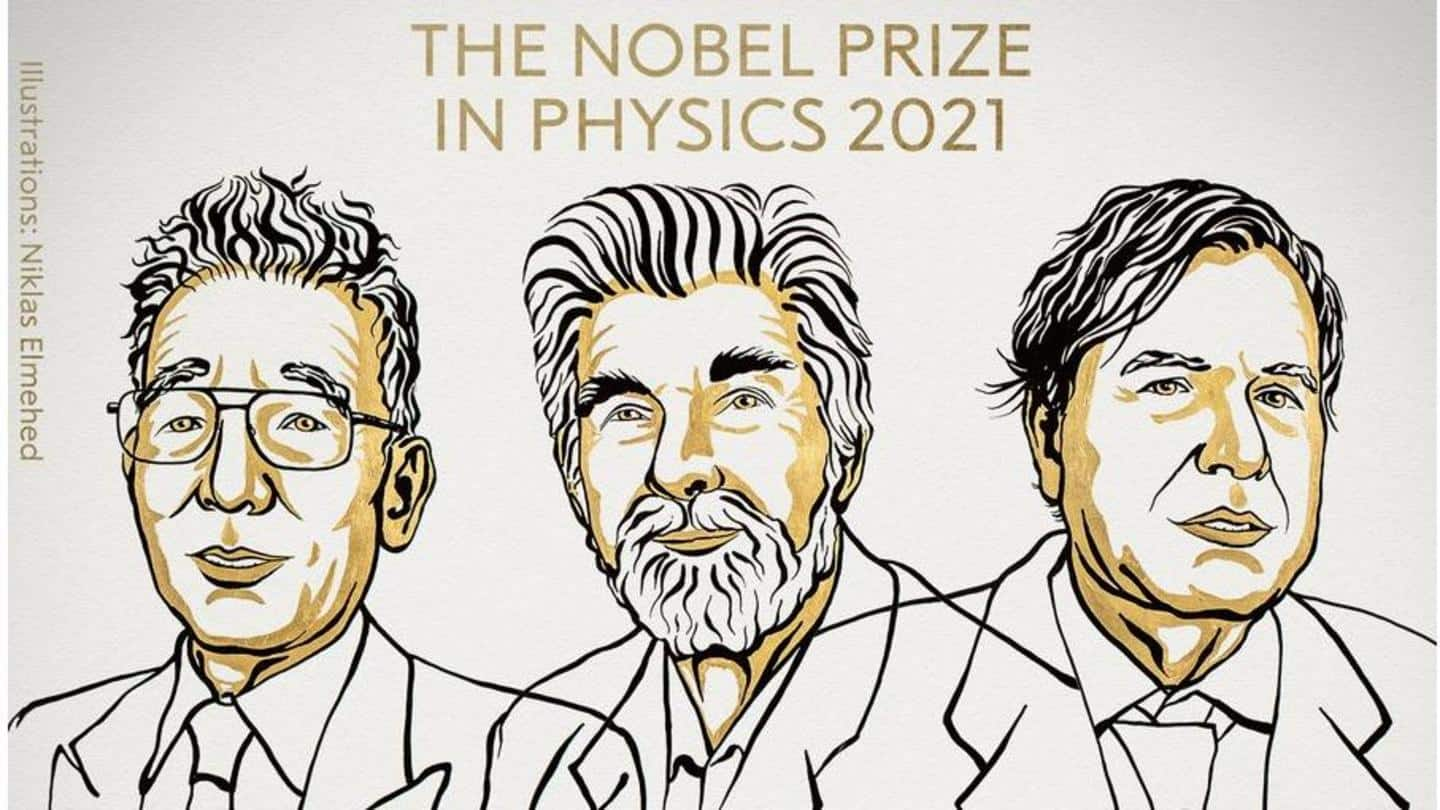
Hasselmann, Manabe, Parisi win Nobel Physics Prize for climate discoveries
What's the story
Syukuro Manabe, Klaus Hasselmann, and Giorgio Parisi won the 2021 Nobel Prize in Physics for "groundbreaking contributions to our understanding of complex physical systems."
The winners were announced on Tuesday by Goran Hansson, the Secretary-General of the Royal Swedish Academy of Sciences.
This is the second announcement of the 2021 Nobel Prize after the Nobel Committee announced the honors for Medicine on Monday.
Winners
Manabe, Hasselmann won half the prize; other half to Parisi
One half of the Nobel Prize went jointly to Manabe and Hasselmann.
They were cited for their work in "the physical modeling of Earth's climate, quantifying variability and reliably predicting global warming."
The second half of the prize was awarded to Parisi for "the discovery of the interplay of disorder and fluctuations in physical systems from atomic to planetary scales."
Work
'They were awarded for studies of chaotic and random phenomena'
Announcing the prize, the Nobel Committee said the three laureates were awarded for their "studies of chaotic and apparently random phenomena."
It said that Manabe and Hasselmann laid the foundation of our knowledge of the Earth's climate and how humanity influences it.
On Parisi, it said that he was "rewarded for his revolutionary contributions to the theory of disordered materials and random processes."
Quote
'Discoveries demonstrate our knowledge about climate rests on scientific foundation'
Talking about this year's Nobel winners, Thors Hans Hansson, the chair of the Nobel Committee for Physics, said, "The discoveries being recognized this year demonstrate that our knowledge about the climate rests on a solid scientific foundation, based on a rigorous analysis of observations."
Manabe
What was the discovery by Manabe?
Manabe was born in 1931 in Shingu, Japan.
He demonstrated how Earth's surface temperature rose with increased levels of carbon dioxide in the atmosphere.
He was the first person to explore the interaction between radiation balance and the vertical transport of air masses, the Royal Swedish Academy of Sciences noted.
His work paved the way for current climate models to be developed.
Hasselmann
Hasselmann created model linking weather and climate
Born in 1931 in Germany, Hasselmann created a model that links together weather and climate.
His work showed that climate models can be reliable even under ever-changing weather conditions.
"He also developed methods for identifying specific signals, fingerprints imprinted in the climate by natural phenomena and human activities," the Academy said.
His work proved how human carbon dioxide emissions were increasing atmospheric temperatures.
Parisi
Parisi's discoveries 'most important to theory of complex systems'
Born in Rome, Italy in 1948, Parisi discovered hidden patterns in disordered complex materials.
His discoveries are among the most important contributions to the theory of complex systems, the Academy noted.
His work helped to understand "many different and apparently entirely random materials and phenomena" across domains; not just in physics, but also in mathematics, biology, neuroscience, and machine learning.